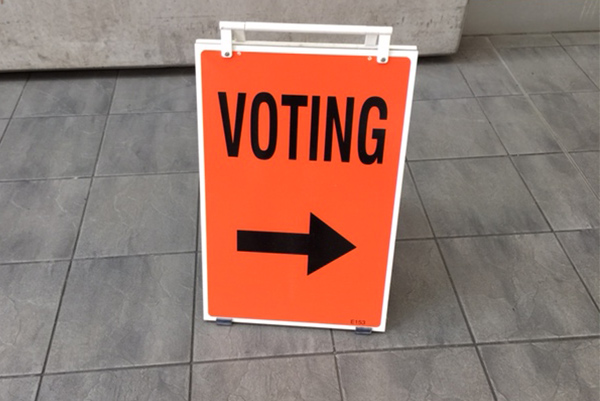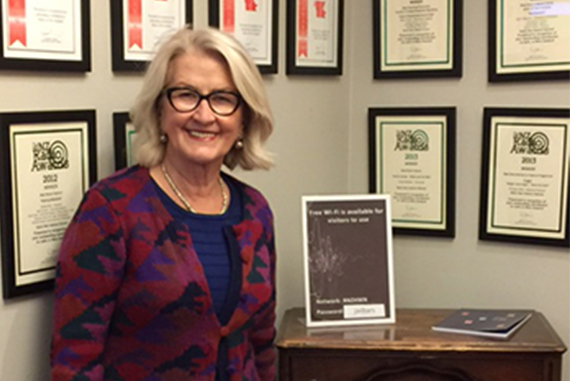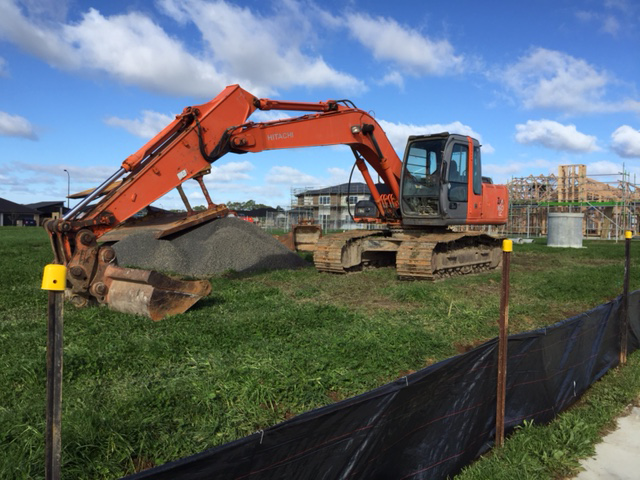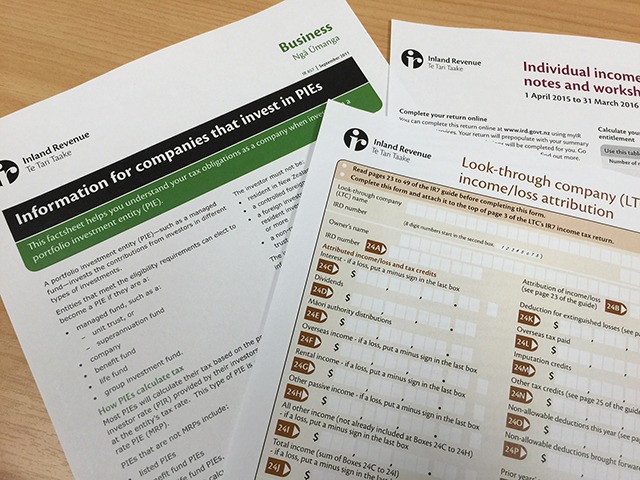Reports & Projects
The Policy Observatory produces a range of outputs, from reports on public policy issues to wider projects that span a variety of media formats. Some of these publications are commissioned by external agencies – others are drawn from the research programmes conducted by leading researchers and scholars, aligned with the Policy Observatory.
Briefing Papers
The Briefing Papers is a Policy Observatory project which provides backgrounders and opinion pieces on critical issues facing New Zealand society – written by experts to inform public debate.
All
Economy
Politics
Society
Politics, Society
The New Zealand general election of 2020 is unusual for also including two referenda questions: one on euthanasia and the other on legalising cannabis. There is a long history of polling public attitudes on both issues, and this Research Note summarises the survey research to date.Compiled by Emeritus Professor Charles...
Economy, Society
The government’s Covid-19 pandemic response is a high-trust model, depending on public goodwill and cooperation. As such, public attitudes towards the government’s handling of the crisis and their responsiveness to the Unite Against Covid-19 campaign are important to measure, as is the public’s understanding of the various elements that make...
Economy, Society
In the lead-up to MediaWorks putting its television business on the market, a number of high-profile staff spoke publicly about the struggles of the company. They blamed the government for an unlevel playing field with state-owned Television New Zealand, TV3’s main rival. In this analysis, Dr Peter Thompson queries the...
Politics, Society
Online voting is used in New Zealand by many organisations, but not yet at local or central government elections. Two trials for local government elections have been proposed, for the 2016 and the 2019 elections. These trials were cancelled but there is support from some in local government to proceed...
Politics, Society
The Policy Observatory has hosted a number of papers on aspects of local government in New Zealand, from evaluating the Auckland Council amalgamation to questioning the balance between central and local government. This page collates those papers, and is divided into two groups: reports and other writings that are longer;...
Politics
New Zealand’s political system is often described as highly centralised, with most power and spending taking place at the national level, and only a small amount of autonomy for local government. In this short paper David Shand distinguishes between the different kinds of autonomy, and argues that in one regard,...
Politics, Society
Workplace inequality remains a challenge for diversity and inclusion. So what role can public policy and the state sector play to promote and encourage positive change?This report, Inclusive Workspaces: Diversity and Public Policy, explores what governments can do to improve diversity outcomes in Aotearoa New Zealand. Professor Edwina Pio, AUT’s...
Politics, Society
Jean Drage’s new report is about how the right to ‘have a say’ in local government in New Zealand has slowly eroded in recent years. The principle of subsidiarity holds that decisions should be made at the level closest to those affected by them, yet the ability of local communities...
Economy, Society
This is a report for those who are interested in, research, and talk about policy solutions for child poverty. Often experts with evidence about what works and doesn't work in the child poverty policy space feel that presenting their evidence should lead to policy change, or changes in public attitudes....
Politics, Society
New Zealand media outlets have argued that companies such as Google and Facebook harm their businesses and their ability to sustain their newsrooms. They believe that Google and Facebook have become too dominant in the New Zealand digital media market, and this is hindering the quality and diversity of their...
Politics
A review is currently underway into the future arrangements for Archives New Zealand, the National Library and Ngā Taonga Sound and Vision. The outcome of this review for Archives New Zealand has implications for the functioning of New Zealand’s democracy. Archives New Zealand regulates record-keeping practises across more than 3000...
Politics, Society
In this discussion paper, The Policy Observatory’s Dr David Hall explores the ways that New Zealanders think about the landscape, and how these ideas influence actual decisions about land use. To put New Zealand on the path of long-term prosperity, he endorses the Interwoven World, Te Ao i Whiria, a...
Economy, Politics
David Hall, Senior Researcher at The Policy Observatory, is engaged in several projects related to the low-emissions transition, especially on forests, land use and sustainable finance. This draws on his academic research background in geography, political theory and public policy, as well as earlier work for Pure Advantage, Trees That...
Economy
UK economist Ann Pettifor visited New Zealand in April to be a keynote speaker at the Institute of Directors’ leadership conference. Although she was only here for a few days, Ann made time to give a public talk at AUT on the topic of housing unaffordability, raising the question whether...
Politics, Society
In this report, local government expert Dr. Mike Reid argues for significant policy change that not only reverses the reforms of the past nine years (which reduced local democracy), but improves on the pre-2008 policy settings. He also argues for a cross-party consensus on the basic tenets of the local...
Politics, Society
In December 1967 the Royal Commission of Inquiry on Compensation for Personal Injury in New Zealand was released. This report – the Woodhouse Report for short - provided the foundation for the no-fault accident compensation and rehabilitation scheme we commonly refer to as ACC. 50 years later, ACC remains largely...
Economy, Society
In this report Keith Rankin, economist at Unitec Institute of Technology, outlines an alternative approach to public accounting, deriving from principles of public equity. He argues for reframing our current system of taxes and benefits as a system of pooling and distributing revenues attributable to public capitals, such as the...
Economy, Society
Big Data creates enormous opportunities for better understanding the impacts and effectiveness of economic and public policy, such as social investment. But our newfound capacity for collecting data and targeting intervention creates risks as well as opportunities. How can we get the best out of big data without enabling the...
Economy
Money is moving in, out and around New Zealand, governed by people’s spending and investment choices. But how do investment decisions shape the world we live in? And how can we ensure that our investments sow the seeds of future prosperity, rather than blow financial bubbles in markets like land...
Economy
#single-post .post-thumb{ display: none; } What is the future of international trade in a world of re-emergent national populism and voter scepticism of big trade deals?This new report brings together thirteen authors who have written thirteen very different essays on the future of trade. What does the Paris Climate Agreement...
Society
In this report, social work academic Dr. Emily Keddell critiques one aspect of the recent child protection services reforms: the prevention of child abuse and neglect. She highlights the points of tension between the way that child abuse is defined throughout the review process, the details of the proposed reforms,...
Economy
Simon Chapple has been studying the rhetoric and policy implementation of what Bill English calls ‘the social investment approach’. Expecting social spending in Budget 2017 to be framed with this concept, Julienne Molineaux interviewed Simon about the term.A short version of this interview was published on The Spinoff website:Julienne: ‘Social...
Economy
In this short report, economist Brian Easton looks at whether housing is, indeed, less affordable than previously. Using Reserve Bank of New Zealand data from 1962 until 2016, he compares house price changes to changes in the Consumer Price Index, a measure of general inflation that does not include house...
Politics
A lot has been written on the crisis of housing affordability in New Zealand, but not a lot from the perspective of those who build houses. Professor John Tookey is an expert on the construction industry, familiar with the economic and regulatory drivers for building and construction. In this report,...
Economy, Politics, Society
After 16 years at AUT and a career spent working in the ‘human laboratory’ Professor Ian Shirley is moving into a new role as an Emeritus Professor of the University.In contrast to the traditional laboratories of the physical sciences he describes his ‘laboratory’ as those populations and groups that are...
Society
In New Zealand there is a triple jeopardy for poor health: poverty, unhealthy housing and inadequate basic health care. Each alone puts health at risk but when the three are combined, poor mental and physical health is almost inevitable. Yet we know what to do to solve these problems, writes...
Economy
In September 2016 UK economist Ann Pettifor was hosted in New Zealand as a distinguished visitor of The Policy Observatory and the Auckland University of Technology. Her busy schedule included public seminars in Auckland and Wellington, discussions with groups such as Treasury, Auckland Council and the Law and Economics Association...
Economy
Ann Pettifor is an author and analyst of the global financial system, and co-author of A Green New Deal (2008). She predicted an Anglo-American debt-deflationary crisis back in 2003, and wrote The Coming First World Debt Crisis in 2006. She is renowned for her work on sovereign debt and her...
Economy
For the last 30 years, New Zealand exporters have been exposed to policies that inflate the exchange rate. These policies, and the inflated exchange rate, have led to a loss in economic complexity in the New Zealand economy, in which wealth now comes from asset appreciation, not production. Exporter John...
Economy
In 2003 the OECD described New Zealand as suffering from ‘a productivity paradox’: we adopted best practise economic policies that were meant to deliver growth, yet our productivity levels are low. In this short report Bill Rosenberg analyses the drivers of our low value, low wage economy, including the role...
Society
When it comes to social development, New Zealand is, overall, a successful country. On a range of indicators we achieve high levels of well-being, opportunity and access to basic needs. But the word ‘overall’ is crucial for it obscures New Zealand’s high levels of poverty, and inequality of income and...
Economy
Ganesh Nana writes about the growing disconnect in the New Zealand economy: New Zealand implemented all the ‘right’ macroeconomic policies such as targeting inflation and exercising prudent fiscal management. Yet productivity problems remain and outcome indicators such as homelessness, child poverty, and housing affordability are getting worse. While these policies...
Society
New Zealand is a signatory to many human rights standards. So why are vulnerable autistic people like Ashley Peacock, who have committed no crimes, detained against their will in mental health facilities?
Politics
Public health policy researcher Philippa Howden-Chapman calls on the New Zealand government to be an active state, embarking on a programme of bold social policy experiments to address stubborn and damaging social problems. Recalling past governments’ willingness to innovate, she criticises the current government’s passivity in the face of seemingly...
Economy
New Zealand’s tax system is largely robust and fair, with a high degree of trust in the system. Tax professionals and bureaucrats have worked hard to minimise tax concessions and maximise the coherence of the system. Deborah Russell argues that for all its internal coherency, there is evidence the tax...
Economy
New Zealand’s two largest newspaper companies – also the owners of many other media products – have applied to the Commerce Commission for permission to merge. This will create a company that owns almost 90% of all daily newspaper circulation and the two largest news website in New Zealand. A...
Economy, Politics
Survey evidence suggests the public want more government spending in a number of policy areas: health, education, housing, law enforcement, public transport and the environment. Yet there has been little increase in the aggregate level of government spending relative to GDP over the last 20 years. What are the spending...
Politics
A new report by The Policy Observatory, The Governance of Auckland: 5 years on, looks at the reasons for creating the unitary Auckland Council, and asks whether it has solved the problems of the old local government structure. The report notes mixed results, with one key goal being met while...
Economy
New Zealand’s agri-foods sector is much wider than production from the land or harvesting from the sea. Enterprises in every part of the economy are involved in creating value from these products. Almost all raw produce needs processing; primary and processing activities draw on goods and services produced across the...
Economy, Society
The government’s Covid-19 pandemic response is a high-trust model, depending on public goodwill and cooperation. As such, public attitudes towards the government’s handling of the crisis and their responsiveness to the Unite Against Covid-19 campaign are important to measure, as is the public’s understanding of the various elements that make...
Economy, Society
In the lead-up to MediaWorks putting its television business on the market, a number of high-profile staff spoke publicly about the struggles of the company. They blamed the government for an unlevel playing field with state-owned Television New Zealand, TV3’s main rival. In this analysis, Dr Peter Thompson queries the...
Economy, Society
This is a report for those who are interested in, research, and talk about policy solutions for child poverty. Often experts with evidence about what works and doesn't work in the child poverty policy space feel that presenting their evidence should lead to policy change, or changes in public attitudes....
Economy, Politics
David Hall, Senior Researcher at The Policy Observatory, is engaged in several projects related to the low-emissions transition, especially on forests, land use and sustainable finance. This draws on his academic research background in geography, political theory and public policy, as well as earlier work for Pure Advantage, Trees That...
Economy
UK economist Ann Pettifor visited New Zealand in April to be a keynote speaker at the Institute of Directors’ leadership conference. Although she was only here for a few days, Ann made time to give a public talk at AUT on the topic of housing unaffordability, raising the question whether...
Economy, Society
In this report Keith Rankin, economist at Unitec Institute of Technology, outlines an alternative approach to public accounting, deriving from principles of public equity. He argues for reframing our current system of taxes and benefits as a system of pooling and distributing revenues attributable to public capitals, such as the...
Economy, Society
Big Data creates enormous opportunities for better understanding the impacts and effectiveness of economic and public policy, such as social investment. But our newfound capacity for collecting data and targeting intervention creates risks as well as opportunities. How can we get the best out of big data without enabling the...
Economy
Money is moving in, out and around New Zealand, governed by people’s spending and investment choices. But how do investment decisions shape the world we live in? And how can we ensure that our investments sow the seeds of future prosperity, rather than blow financial bubbles in markets like land...
Economy
#single-post .post-thumb{ display: none; } What is the future of international trade in a world of re-emergent national populism and voter scepticism of big trade deals?This new report brings together thirteen authors who have written thirteen very different essays on the future of trade. What does the Paris Climate Agreement...
Economy
Simon Chapple has been studying the rhetoric and policy implementation of what Bill English calls ‘the social investment approach’. Expecting social spending in Budget 2017 to be framed with this concept, Julienne Molineaux interviewed Simon about the term.A short version of this interview was published on The Spinoff website:Julienne: ‘Social...
Economy
In this short report, economist Brian Easton looks at whether housing is, indeed, less affordable than previously. Using Reserve Bank of New Zealand data from 1962 until 2016, he compares house price changes to changes in the Consumer Price Index, a measure of general inflation that does not include house...
Economy, Politics, Society
After 16 years at AUT and a career spent working in the ‘human laboratory’ Professor Ian Shirley is moving into a new role as an Emeritus Professor of the University.In contrast to the traditional laboratories of the physical sciences he describes his ‘laboratory’ as those populations and groups that are...
Economy
In September 2016 UK economist Ann Pettifor was hosted in New Zealand as a distinguished visitor of The Policy Observatory and the Auckland University of Technology. Her busy schedule included public seminars in Auckland and Wellington, discussions with groups such as Treasury, Auckland Council and the Law and Economics Association...
Economy
Ann Pettifor is an author and analyst of the global financial system, and co-author of A Green New Deal (2008). She predicted an Anglo-American debt-deflationary crisis back in 2003, and wrote The Coming First World Debt Crisis in 2006. She is renowned for her work on sovereign debt and her...
Economy
For the last 30 years, New Zealand exporters have been exposed to policies that inflate the exchange rate. These policies, and the inflated exchange rate, have led to a loss in economic complexity in the New Zealand economy, in which wealth now comes from asset appreciation, not production. Exporter John...
Economy
In 2003 the OECD described New Zealand as suffering from ‘a productivity paradox’: we adopted best practise economic policies that were meant to deliver growth, yet our productivity levels are low. In this short report Bill Rosenberg analyses the drivers of our low value, low wage economy, including the role...
Economy
New Zealand’s tax system is largely robust and fair, with a high degree of trust in the system. Tax professionals and bureaucrats have worked hard to minimise tax concessions and maximise the coherence of the system. Deborah Russell argues that for all its internal coherency, there is evidence the tax...
Economy
Ganesh Nana writes about the growing disconnect in the New Zealand economy: New Zealand implemented all the ‘right’ macroeconomic policies such as targeting inflation and exercising prudent fiscal management. Yet productivity problems remain and outcome indicators such as homelessness, child poverty, and housing affordability are getting worse. While these policies...
Economy
New Zealand’s two largest newspaper companies – also the owners of many other media products – have applied to the Commerce Commission for permission to merge. This will create a company that owns almost 90% of all daily newspaper circulation and the two largest news website in New Zealand. A...
Economy, Politics
Survey evidence suggests the public want more government spending in a number of policy areas: health, education, housing, law enforcement, public transport and the environment. Yet there has been little increase in the aggregate level of government spending relative to GDP over the last 20 years. What are the spending...
Economy
New Zealand’s agri-foods sector is much wider than production from the land or harvesting from the sea. Enterprises in every part of the economy are involved in creating value from these products. Almost all raw produce needs processing; primary and processing activities draw on goods and services produced across the...
Politics, Society
The New Zealand general election of 2020 is unusual for also including two referenda questions: one on euthanasia and the other on legalising cannabis. There is a long history of polling public attitudes on both issues, and this Research Note summarises the survey research to date.Compiled by Emeritus Professor Charles...
Politics, Society
Online voting is used in New Zealand by many organisations, but not yet at local or central government elections. Two trials for local government elections have been proposed, for the 2016 and the 2019 elections. These trials were cancelled but there is support from some in local government to proceed...
Politics, Society
The Policy Observatory has hosted a number of papers on aspects of local government in New Zealand, from evaluating the Auckland Council amalgamation to questioning the balance between central and local government. This page collates those papers, and is divided into two groups: reports and other writings that are longer;...
Politics
New Zealand’s political system is often described as highly centralised, with most power and spending taking place at the national level, and only a small amount of autonomy for local government. In this short paper David Shand distinguishes between the different kinds of autonomy, and argues that in one regard,...
Politics, Society
Workplace inequality remains a challenge for diversity and inclusion. So what role can public policy and the state sector play to promote and encourage positive change?This report, Inclusive Workspaces: Diversity and Public Policy, explores what governments can do to improve diversity outcomes in Aotearoa New Zealand. Professor Edwina Pio, AUT’s...
Politics, Society
Jean Drage’s new report is about how the right to ‘have a say’ in local government in New Zealand has slowly eroded in recent years. The principle of subsidiarity holds that decisions should be made at the level closest to those affected by them, yet the ability of local communities...
Politics, Society
New Zealand media outlets have argued that companies such as Google and Facebook harm their businesses and their ability to sustain their newsrooms. They believe that Google and Facebook have become too dominant in the New Zealand digital media market, and this is hindering the quality and diversity of their...
Politics
A review is currently underway into the future arrangements for Archives New Zealand, the National Library and Ngā Taonga Sound and Vision. The outcome of this review for Archives New Zealand has implications for the functioning of New Zealand’s democracy. Archives New Zealand regulates record-keeping practises across more than 3000...
Politics, Society
In this discussion paper, The Policy Observatory’s Dr David Hall explores the ways that New Zealanders think about the landscape, and how these ideas influence actual decisions about land use. To put New Zealand on the path of long-term prosperity, he endorses the Interwoven World, Te Ao i Whiria, a...
Economy, Politics
David Hall, Senior Researcher at The Policy Observatory, is engaged in several projects related to the low-emissions transition, especially on forests, land use and sustainable finance. This draws on his academic research background in geography, political theory and public policy, as well as earlier work for Pure Advantage, Trees That...
Politics, Society
In this report, local government expert Dr. Mike Reid argues for significant policy change that not only reverses the reforms of the past nine years (which reduced local democracy), but improves on the pre-2008 policy settings. He also argues for a cross-party consensus on the basic tenets of the local...
Politics, Society
In December 1967 the Royal Commission of Inquiry on Compensation for Personal Injury in New Zealand was released. This report – the Woodhouse Report for short - provided the foundation for the no-fault accident compensation and rehabilitation scheme we commonly refer to as ACC. 50 years later, ACC remains largely...
Politics
A lot has been written on the crisis of housing affordability in New Zealand, but not a lot from the perspective of those who build houses. Professor John Tookey is an expert on the construction industry, familiar with the economic and regulatory drivers for building and construction. In this report,...
Economy, Politics, Society
After 16 years at AUT and a career spent working in the ‘human laboratory’ Professor Ian Shirley is moving into a new role as an Emeritus Professor of the University.In contrast to the traditional laboratories of the physical sciences he describes his ‘laboratory’ as those populations and groups that are...
Politics
Public health policy researcher Philippa Howden-Chapman calls on the New Zealand government to be an active state, embarking on a programme of bold social policy experiments to address stubborn and damaging social problems. Recalling past governments’ willingness to innovate, she criticises the current government’s passivity in the face of seemingly...
Economy, Politics
Survey evidence suggests the public want more government spending in a number of policy areas: health, education, housing, law enforcement, public transport and the environment. Yet there has been little increase in the aggregate level of government spending relative to GDP over the last 20 years. What are the spending...
Politics
A new report by The Policy Observatory, The Governance of Auckland: 5 years on, looks at the reasons for creating the unitary Auckland Council, and asks whether it has solved the problems of the old local government structure. The report notes mixed results, with one key goal being met while...
Politics, Society
The New Zealand general election of 2020 is unusual for also including two referenda questions: one on euthanasia and the other on legalising cannabis. There is a long history of polling public attitudes on both issues, and this Research Note summarises the survey research to date.Compiled by Emeritus Professor Charles...
Economy, Society
The government’s Covid-19 pandemic response is a high-trust model, depending on public goodwill and cooperation. As such, public attitudes towards the government’s handling of the crisis and their responsiveness to the Unite Against Covid-19 campaign are important to measure, as is the public’s understanding of the various elements that make...
Economy, Society
In the lead-up to MediaWorks putting its television business on the market, a number of high-profile staff spoke publicly about the struggles of the company. They blamed the government for an unlevel playing field with state-owned Television New Zealand, TV3’s main rival. In this analysis, Dr Peter Thompson queries the...
Politics, Society
Online voting is used in New Zealand by many organisations, but not yet at local or central government elections. Two trials for local government elections have been proposed, for the 2016 and the 2019 elections. These trials were cancelled but there is support from some in local government to proceed...
Politics, Society
The Policy Observatory has hosted a number of papers on aspects of local government in New Zealand, from evaluating the Auckland Council amalgamation to questioning the balance between central and local government. This page collates those papers, and is divided into two groups: reports and other writings that are longer;...
Politics, Society
Workplace inequality remains a challenge for diversity and inclusion. So what role can public policy and the state sector play to promote and encourage positive change?This report, Inclusive Workspaces: Diversity and Public Policy, explores what governments can do to improve diversity outcomes in Aotearoa New Zealand. Professor Edwina Pio, AUT’s...
Politics, Society
Jean Drage’s new report is about how the right to ‘have a say’ in local government in New Zealand has slowly eroded in recent years. The principle of subsidiarity holds that decisions should be made at the level closest to those affected by them, yet the ability of local communities...
Economy, Society
This is a report for those who are interested in, research, and talk about policy solutions for child poverty. Often experts with evidence about what works and doesn't work in the child poverty policy space feel that presenting their evidence should lead to policy change, or changes in public attitudes....
Politics, Society
New Zealand media outlets have argued that companies such as Google and Facebook harm their businesses and their ability to sustain their newsrooms. They believe that Google and Facebook have become too dominant in the New Zealand digital media market, and this is hindering the quality and diversity of their...
Politics, Society
In this discussion paper, The Policy Observatory’s Dr David Hall explores the ways that New Zealanders think about the landscape, and how these ideas influence actual decisions about land use. To put New Zealand on the path of long-term prosperity, he endorses the Interwoven World, Te Ao i Whiria, a...
Politics, Society
In this report, local government expert Dr. Mike Reid argues for significant policy change that not only reverses the reforms of the past nine years (which reduced local democracy), but improves on the pre-2008 policy settings. He also argues for a cross-party consensus on the basic tenets of the local...
Politics, Society
In December 1967 the Royal Commission of Inquiry on Compensation for Personal Injury in New Zealand was released. This report – the Woodhouse Report for short - provided the foundation for the no-fault accident compensation and rehabilitation scheme we commonly refer to as ACC. 50 years later, ACC remains largely...
Economy, Society
In this report Keith Rankin, economist at Unitec Institute of Technology, outlines an alternative approach to public accounting, deriving from principles of public equity. He argues for reframing our current system of taxes and benefits as a system of pooling and distributing revenues attributable to public capitals, such as the...
Economy, Society
Big Data creates enormous opportunities for better understanding the impacts and effectiveness of economic and public policy, such as social investment. But our newfound capacity for collecting data and targeting intervention creates risks as well as opportunities. How can we get the best out of big data without enabling the...
Society
In this report, social work academic Dr. Emily Keddell critiques one aspect of the recent child protection services reforms: the prevention of child abuse and neglect. She highlights the points of tension between the way that child abuse is defined throughout the review process, the details of the proposed reforms,...
Economy, Politics, Society
After 16 years at AUT and a career spent working in the ‘human laboratory’ Professor Ian Shirley is moving into a new role as an Emeritus Professor of the University.In contrast to the traditional laboratories of the physical sciences he describes his ‘laboratory’ as those populations and groups that are...
Society
In New Zealand there is a triple jeopardy for poor health: poverty, unhealthy housing and inadequate basic health care. Each alone puts health at risk but when the three are combined, poor mental and physical health is almost inevitable. Yet we know what to do to solve these problems, writes...
Society
New Zealand is a signatory to many human rights standards. So why are vulnerable autistic people like Ashley Peacock, who have committed no crimes, detained against their will in mental health facilities?
Society
When it comes to social development, New Zealand is, overall, a successful country. On a range of indicators we achieve high levels of well-being, opportunity and access to basic needs. But the word ‘overall’ is crucial for it obscures New Zealand’s high levels of poverty, and inequality of income and...






































